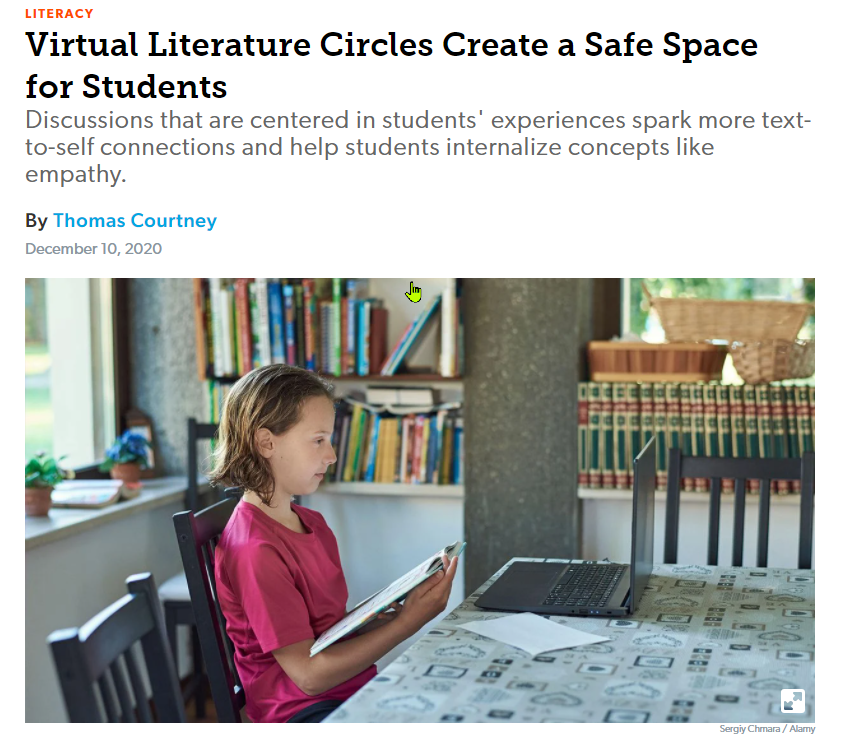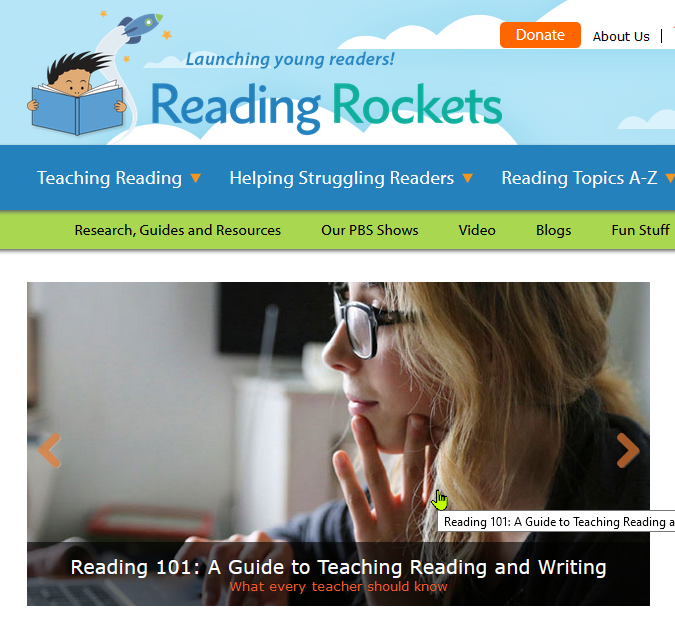Reading
Reading is so much more that decoding. It is understanding: the very act of comprehension. It requires practice to become fluent.
Inspire Children to Understand |
 Reading lesson spotlight: Literature Circles Reading lesson spotlight: Literature Circles |
Reading is Engagement
The teaching of reading was forced to change in the 2020-2021 school year with remote learning. Although the teacher was formally in charge, the parents were suddenly responsible for ensuring that their children are doing what they needed to do. Now in the 2022-2023 year children have returned to in-person learning, but parents still need encourage their children, and oversee their progress.
Reading is as important as it ever was in life. With more and more online learning, the parent's role has evolved. They are in charge of creating and managing the home learning environment. They have to enforce study rules. They have to guide young learners. This page is dedicated to making that process easier.


Learning is Developmental
Reading is a developmental process. When learning to read, we start with letter recognition and auditory discrimination. We simultaneously read stories aloud to our children, pointing at pictures, and embellishing with voices and questions.
Ultimately, reading is understanding. It requires curiosity and engagement.
Secrets of Teaching Reading
I have taught students from kindergarten through high school in my career. My first year teaching was third grade. Eight year olds hanging on my every word. What immediately struck me was that I didn't have a clue as to how to teach reading - not really. I immediately enrolled in a graduate program for Teaching of Reading, taking courses at night. I learned over time what to do, in what order, and what not to do.
Teachers receive instructional guidance over their years in the profession. I think it is extremely difficult for parents to instantly implement methods that teachers have taken years to learn and cultivate. So here are some tips:
- Read every day.
- Make reading fun. Take breaks, but be persistent.
- You are never to old to listen to someone else read aloud. I used to read aloud to my 10th grade English class, and they loved it.
- Ham it up. Use different voices for different characters. Create goofy sound effects.
- Interact and ask simple questions, but don't appear to test them. Don't make reading a graded activity.
- Have students read aloud, but avoid excessive corrections. Help them sound out words.
- Ask them to predict what will happen next, even if you have read the story 10 times.
- Ask students to re-tell the story in their own words.
- Read, read, read a variety of things from stories to recipes to labels.
- Learning involves lots of repetition and practice. That means allowing students sufficient time.
- Mistakes and struggle are an essential part of learning. They are not intentional.
- Take a deep breath if you find yourself getting frustrated with a child. Be patient. Avoid anger.
- Experienced teachers know they have to "mix it up" to keep interest alive and students engaged. Don't be afraid to take a break, and switch to a different activity when necessary.
Build a Reading Rockets classroom at home
First, check out Reading 101 online course with great explanations and how-to videos.
Reading is social

There is no one best space or method. How you structure lesson time expectations is critical. Establish regular times for learning activities.
Zoom and other video chat programs have become the dominant mode of direct instruction. Some parts of each lesson may be in the form of prerecorded lessons. Other parts my be live via Zoom, Google Meet or some other video platform.
Google Classroom is an extremely popular learning management system used by schools. Every student has a protected, private email. They can see and submit assignments online.
Check out this Parent's Guide to Google Classroom.
| Read The Parent Challenge on Rick's Blog for an in-depth treatment of this topic. You will find additional teaching tips and methods. |

